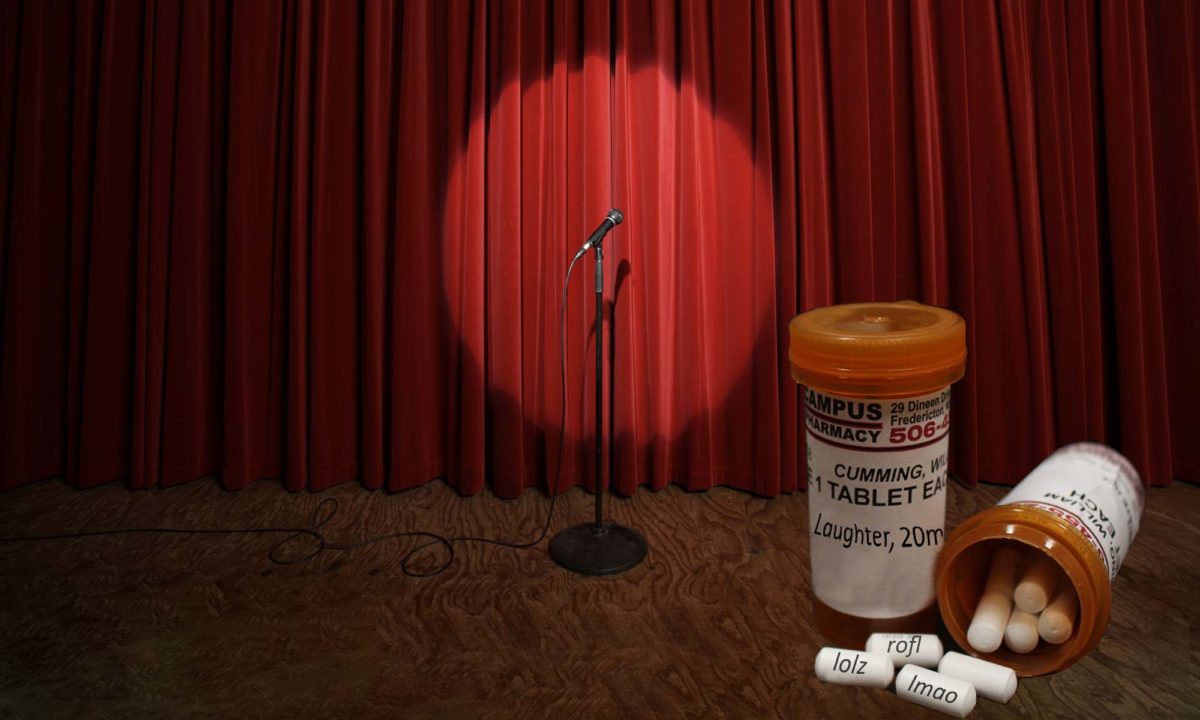Comedians have a great power: they give their audience a licence to laugh. What makes an individual uncomfortable can leave a group in stitches with some clever words from the right performer.
But in the wise words of Uncle Ben, “with great power comes great responsibility.” Many comedians address important issues in their sets, especially if they are a member of a minority group, but does laughing at those issues make us more comfortable talking about them, or just turn them into jokes?
Olivier Hébert, sexual and gender diversity representative for St. Thomas’ Student’s Union, said comedy can be a great way to address important issues, when handled properly.
“If you’re laughing most things are easier to talk about. We make people laugh at funerals because it breaks the tension, or when we are having awkward conversations with people, like having the sex talk with your kids. It’s definitely always a tool that is used by people, and obviously professional comedians are really able to exploit that to whatever ends they wish,” said Hébert.
Hebért also said despite the benefits of comedy, boundaries are still important.
“I think boundaries of humour is an interesting conversation and an important one. For sure, comedy is one of the ways we talk about difficult things and come up against a lot of stereotypes and uncomfortable ideas in our society, but at the same time there is a line between where your jokes are funny and where they are perpetuating ideas that can further the harm that [a] community is subject to.”
But how do you decide what boundaries to cross, and which ones are sacred? There is no consensus on the issue, so it’s down to the comedian to decide.
Alex Vietinghoff, co-founder of New Brunswick satire magazine The Manatee, said it’s important to consider your subject matter carefully.
“There have been topics or news stories over the years that … we didn’t cover because we felt they would either be taking advantage of someone’s loss or we knew would only anger everyone and not encourage them to laugh or think critically about anything,” said Vietinghoff.
“If I am writing about something sensitive, for example, about language politics in New Brunswick, I try to make sure that whatever I’m saying wouldn’t be racist or needlessly hurtful to any person or group. We’ve turned away stories people have submitted that we felt served only to bully a public figure or group that the writer felt was in the wrong, or merely provide shock value with no substance.”
And what about the forms of comedy that don’t have a comedian to carefully curate the content? Cards Against Humanity is a great example of this. For the pure-hearted among us who don’t know what Cards Against Humanity is, here is a direct quote from its website:
“Cards Against Humanity is a party game for horrible people. Unlike most of the party games you’ve played before, Cards Against Humanity is as despicable and awkward as you and your friends.”
Basically, the point of the game is to find the most offensive response card to play against the judge’s prompt card. Here is an example (also displayed on its website).
Prompt card: Why can’t I sleep at night?
Response card: Not giving a shit about the Third World.
I used to play this game all the time in high school and I thought it was hilarious. Looking back at it now though I see so many problems with it, the biggest being that it gives people with no connection to an issue a licence to make fun of it (another being that it’s not even clever humour and I am embarrassed I used to find it so funny).
Hébert said giving people with no connection to an issue permission to make fun of it, even in private, is problematic.
“I think those in-private jokes can play into the culture of micro-aggression that we see against people of colour and queer folks and women dealing with harassment in the workplace and sexual assaults … because we, behind closed doors, make jokes about these people at their expense,” said Hébert.
Hébert said addressing these jokes in our personal groups is an important step in addressing them as a society.
“I have some friends who like to make jokes in private and use words like the N-word. I know they aren’t people who hate black people, but at the same time to me that is very clearly internalized racism,” said Hébert. “I think it definitely feels harder with people you know to call them out on something, and I’ll do that with stuff that affects me as a queer and trans person. I won’t call my friends out or correct people I know about things because I am uncomfortable with that.”
So, while laughter may be the best medicine, it might be better off in the hands of professionals who can assign an appropriate prescription.

